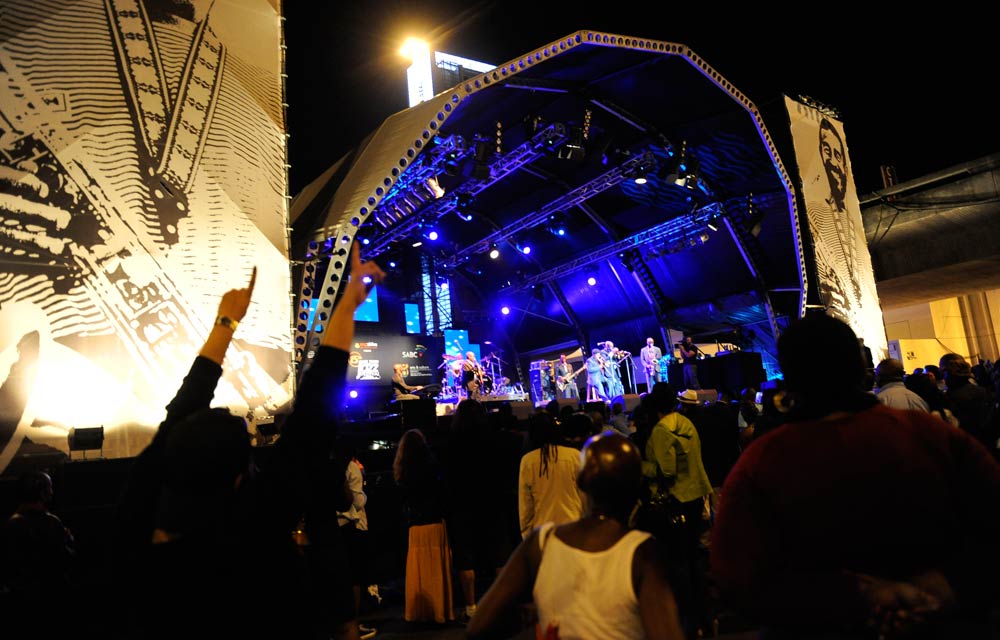“Africa’s grandest gathering” was the tagline for the 15th annual Cape Town International Jazz Festival (CTIJF) held last week. Having attended it, I can see why. The magnitude of the event was awe-inspiring, bringing in people from around the world. The streets were packed, there was not a spare hotel room in the city and the cab drivers made a killing.

However, despite the grand nature of the event I have to question its lack of an African focus. There were only three African countries represented at the event. We had Moh Dediouf from Senegal, Frank Paco Art Ensemble and Jaco Maria from Mozambique, and a slew of South African artists.
The rest were from a host of western countries including the Netherlands. I am not completely sure when the Netherlands became titans in jazz, but there they were.
The question is: Why is it that in order to make things ‘grand’ and more prominent in Africa we need to add the ‘international element’ and constantly overlook our own African talent?
Although I understand the commercial need for an international heavyweight (Erykah Badu as the headliner brought in the crowds), the festival seems to rarely engage with other African acts – a fact that was mentioned during the preceding workshops and talks held before the actual event. This means that festival organisers sometimes play hard and loose with what can be considered ‘jazz’. Case in point: the presence of English rock band Level 42. Talk about an effective way of clearing out an auditorium. Jazz lovers poured out of the main stage area and filled the outside streets. The first night of the jazz festival was officially done when the rock chords were hit.
Acts from the USA and the UK dominated the numbers. With some of the South African acts, there were repeat offenders who had appeared as recently as the previous year. The organisers could have at least waited for them to produce a new album before putting them back on the stage.
Furthermore, anyone who knows the South African music scene (especially the Afro Jazz scene) knows that there are more than enough Afro Jazz musicians with fresh acts every year. Allowing old acts meant there was less space for other African acts, both from within South Africa and beyond. The legendary Simphiwe Dana or even up-and-coming young talent such as Ugandan saxophonist Brian Mugenyi could have been worthy additions to the line-up.
Why was there a need to reload old acts while filling in other slots with miscellaneous acts from the Netherlands and Australia, with artists many have never heard of? I am all for redefining the meaning of jazz and growing one’s repertoire of music but sometimes there is a fine line between being eclectic and being out of place.
If the CTIJF wanted to promote new jazz acts, there is certainly no lack of regional and local acts that could fill the slots whilst also pushing the boundaries.
You only need to look at the host of events popping up around the continent to know there is a minefield of talent. At the Safaricom Jazz Festival in Kenya in February, Richard Bona from Cameroon headlined. The beautiful thing about this concert was that all of the acts were from Africa. The Zanzibar Music Festival (Sauti za Basura) along with the fringe events in Basura Xtra is held each year as a celebration of East African music, showing that there is an abundance of talent on the continent that needs to be tapped into.
The Cape Town Jazz Fest is truly one of Africa’s biggest music festivals but I don’t believe it has showcased enough musicians from the continent, which is sad as the array of musical talent remain largely untapped at this point.
To acknowledge the depth of talent is to struggle with the entrenched idea that we must look outside to find the best and the brightest. The festival showed that Africans have the potential to redefine an age-old genre. Moh Dediouf, a Senegalese musician in a sequinned dashiki, accompanied by a saxophone and his back-up singers in traditional Zulu jewellery, brought a certain flavour to the festival that is not seen anywhere else.
With festivals like the Cape Town International Jazz Festival going from strength to strength, there is potential to build a billion-dollar industry right here on the continent rather than always having to go and beg for affirmation on the ‘international stage’. It would be great to be at the centre of a genre rather than constantly being relegated to the realms of ‘world music’ a la the Grammys.
Kagure Mugo is a freelance writer and co-founder and curator of holaafrica.org, a Pan-Africanist queer women’s collective which engages in activism and awareness-building around issues of African women’s identity, experiences and sexuality. Connect with her on Twitter: @tiffmugo
